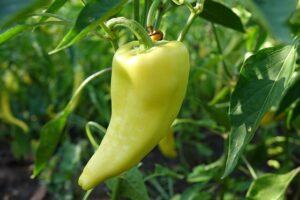Is it really worth switching to organic farming?
The Ecological Agricultural Research Institute (ÖMKi) is launching new agricultural research with the support of the Hungarian National Rural Network, the research institute announced on the eve of Science Day. Now, for the first time, the profitability of organic farming is assessed nationally, with representative research. Those farmers who contribute to the effectiveness of the research by voluntarily providing data can receive a useful feedback on their own farm operations: they can evaluate their economic performance, recognize their strengths and areas for improvement, as they will be able to compare the performance of their own farm with sector-specific, representative data. The gap-filling research can also provide extremely useful clues to farmers who intend to switch to organic crop cultivation or animal husbandry in the future.
 In addition to producing food and feed, agricultural businesses use our natural resources and shape the landscape around us. So it doesn’t matter how, with what environmental footprint, they operate in cooperation with nature or by burdening it with agrochemicals. At the same time, agricultural businesses, like all businesses, can be characterized by costs and income-generating capacity. Their activity is sustainable if they can provide adequate income for the employees of the company.
In addition to producing food and feed, agricultural businesses use our natural resources and shape the landscape around us. So it doesn’t matter how, with what environmental footprint, they operate in cooperation with nature or by burdening it with agrochemicals. At the same time, agricultural businesses, like all businesses, can be characterized by costs and income-generating capacity. Their activity is sustainable if they can provide adequate income for the employees of the company.
The cost-benefit analysis of agricultural production at the sectoral level has long been the subject of research and analysis.The Agrárközgazdasági Intézet (AKI) annually examines and publishes the sectoral cost-benefit analysis of Hungarian commodity-producing agricultural enterprises on a representative sample of more than two thousand agricultural producers, through the so-called test farm network, the cost and income data provided voluntarily by the enterprises based on These data are important guidelines for planning agricultural policy measures and monitoring their effects. Although AKI’s network of test farms includes farms that have partially or fully switched to organic production, the data are not representative of this form of farming. From the data of AKI’s test farm system, we know that, for example, in the case of wheat in 2022, production costs amounted to HUF 321,000 per hectare on average. The two largest cost items of this, 54% of the total costs, were nutrient supply and machine work.In organic farming, however, these data are not, or only very limited, usable, just think of the completely different use of input materials in organic production.
The EU’s “Farmland to Fork” strategy set the goal that by 2030, 25% of the EU’s agricultural land will be organically farmed. According to the strategic plan of the Hungarian Common Agricultural Policy (KAP), by 2027, 10% of Hungarian agricultural land will be produced in an ecological farming system. Currently, 6.3% of domestic agricultural land is under organic cultivation. At the same time, the total area of farms with eco certification, but also farming in a non-eco manner, covers 12.5% of domestic agricultural land. The 10% transition target scheduled for 2027 could therefore be achieved even if the partially transitioned plants expanded their eco-management activities.However, for growth, it is essential that producers can be convinced of the economic competitiveness of organic farming, in relation to as many production sectors as possible.
Related news
Related news
Focus on the domestic fishing sector at SIRHA Budapest
🎧 Hallgasd a cikket: Lejátszás Szünet Folytatás Leállítás Nyelv: Auto…
Read more >Where wheat turns into flour and data: this is how the domestic milling industry is digitizing
🎧 Hallgasd a cikket: Lejátszás Szünet Folytatás Leállítás Nyelv: Auto…
Read more >





